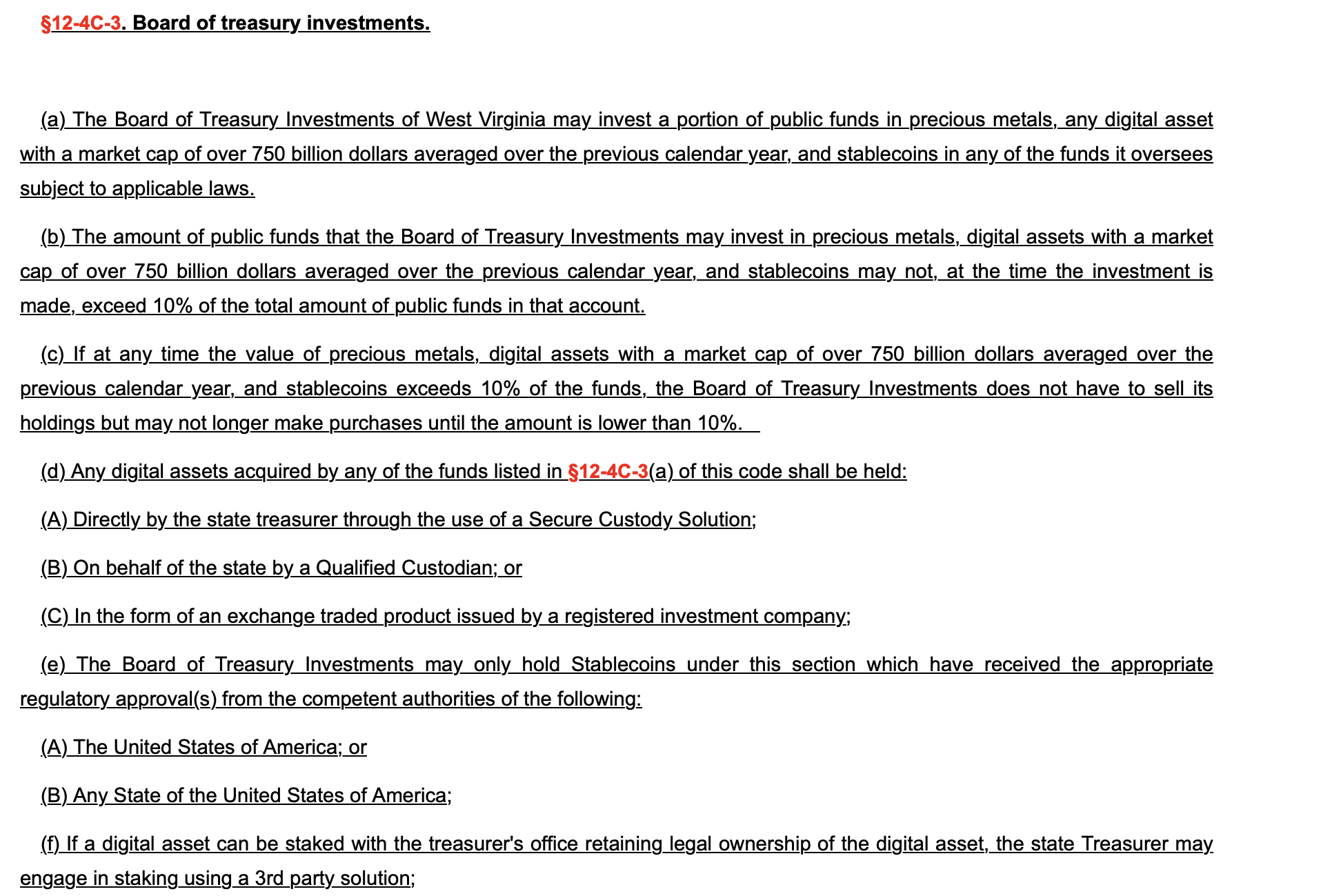The strategic reserve bill for Bitcoin (BTC) in West Virginia aims to enhance the state’s autonomy from the federal government and reduce reliance on a potential central bank digital currency (CBDC), as highlighted by State Senator Chris Rose in a recent interview.
“There are speculations about individuals in the federal government wanting to establish a central bank digital currency,” Rose explained. “This is not what people want. They desire a decentralized currency. They seek freedom.”
Introduced in February, the bill seeks to enable the state treasury to invest up to 10% of public funds in precious metals such as gold and silver, stablecoins, or any digital asset that has maintained a market capitalization of $750 million or more over the previous year. Currently, Bitcoin is the only digital asset that meets this criterion.

West Virginia State Senator Chris Rose.
As the bill’s sponsor, Rose indicated that the market cap threshold was established to provide the state with exposure to cryptocurrency while steering clear of investments in “memecoins.”
Implementing Bitcoin at the state level would “enhance our state sovereignty,” Rose remarked. “That’s one reason many individuals who typically buy [Bitcoin] for personal holdings are keen to see their state government embrace it as well.”
He further noted that allocating 10% of state funds would serve as a “positive introduction to [Bitcoin] for the state,” while addressing the apprehensions of those unfamiliar with digital assets. “This approach ensures they feel comfortable while still offering us reasonable exposure,” he stated.
Bitcoin: A significant investment and liberation tool
Rose pointed out that a major obstacle to the bill’s passage is fear, particularly among those lacking understanding of cryptocurrency. “Like any other state, we have those who comprehend it as well as those who do not, and there will always be fear regarding the unknown,” he remarked.
He added, “However, once people grasp it, they come to realize it’s a very powerful investment and freedom tool available to everyone.”

Snippet from the West Virginia Bitcoin reserve bill.
The state’s governor, who has envisioned a future economy driven by digital currency and technology, is not expected to obstruct the bill, according to Rose. Additionally, the state treasurer, whom Rose consulted prior to introducing the bill, is on board as well.
However, some legislators and financial experts maintain a skeptical outlook on the proposal. Investing state funds in Bitcoin could be seen as precarious due to the asset’s volatility and price fluctuations, which might risk financial stability and render Bitcoin a contentious option for state investing.
While numerous states across the United States have introduced Bitcoin strategic reserve bills, some have fallen short or have eliminated essential provisions, particularly in traditionally conservative areas.
Currently, there are 47 strategic Bitcoin reserve bills proposed in 26 states. Although most have only been introduced or sent to committees, notable progress has been observed in three states: Arizona, Oklahoma, and Texas.
Related: Texas Senate passes Bitcoin strategic reserve bill
Rose clarified that the 10% of state funds allocated for precious metals, stablecoins, or Bitcoin would be derived from two primary sources.
“It would come from the assets under the pension fund and the severance tax fund,” Rose shared. “They would have the ability to divest some of those ETF funds into these assets. We aimed to keep this distinct from the petty cash fund, which manages day-to-day expenses, to focus on our long-term assets,” he explained.
Magazine: X Hall of Flame, Benjamin Cowen: Bitcoin dominance will fall in 2025
